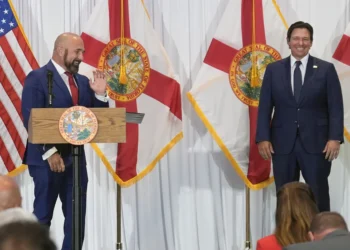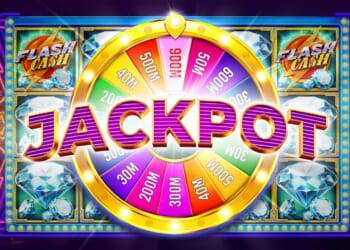The Sandersons Fail Manhattan, written by Campusland author Scott Johnston, is a fun, cathartic satire about DEI activists using cancel culture to ruin the lives of one unsuspecting family.
Buried in the laughs and social commentary, however, is a surprisingly insightful identification and portrayal of the three kinds of people that have made sweeping societal change — especially DEI and trans insanity — possible in the last decade.
A Quick Plot Synopsis
The book introduces the titular Sandersons as newcomers to Manhattan. William Sanderson is an investment analyst, Yale alum, and Upper East Side native who is moving back to the city with his family. His wife, Ellie, is finding her way in Manhattan’s social scene. Their daughters, Ginny and Zoey, are starting a new school year at Lennox Hill School for Girls.
Everything goes sideways when Lennox Hill welcomes two LGBT students — one is a girl who claims to be “ecosexual” and the other is a boy who says he is transgender. Zoey befriends the “ecosexual” girl, Clover, who reveals that she uses her identity for social immunity. Easter Riddle, the trans-identifying student, tries to befriend Clover without much success.
As Halloween approaches, Ginny, Zoey, and Clover help one of Clover’s friends brainstorm for a three-person group costume. As a joke, they suggest dressing up as a “trans man,” a “trans woman,” and a “gender fluid” person. When screenshots are posted on Instagram by Clover’s friend and Ginny is unfairly accused of assaulting a trans-identifying student from another school, the Sanderson girls are suspended. Easter’s parents lawyer up and issue a statement that Easter feels unsafe at Lennox Hill. Easter leaves a cryptic message on social media and disappears. A city-wide search ensues.
Meanwhile, William is ambushed by protestors, and a clip of him calling them “freaks” makes the rounds on social media. Under pressure from his employers and the school board, he releases a statement condemning his daughters’ actions. Feeling betrayed, Ellie, Ginny, and Zoey retreat to the family’s second house in the Hamptons to wait out the storm. William remains in Manhattan.
While the Sanderson girls are in hiding, Clover receives a text from Easter with his location. Ginny and Zoey sneak out with her and drive to the Riddles’ second house in Connecticut, where Easter has been hiding since he disappeared. His parents are aware of his location but continue to milk his disappearance for social media clicks, a GoFundMe account, and contributions to a nonprofit foundation.
Easter returns to Manhattan and reveals his parents’ fraud at the community’s Halloween ball. They are arrested, but charges are dismissed because Easter refuses to testify against them. He hints at detransitioning at the book’s end. Ellie decides to homeschool Ginny and Zoey for the remainder of the school year. After several months of estrangement, William and Ellie reconcile.
Shots Fired
With shots aimed at school boards, affirmative action, corporate DEI, drag queens, transgenderism, activist lawyers, activist journalists, parent influencers profiting off their children, people who go along just to get along, casual hypocrisy, cell phones, social media, and kids these days, the book is not a particularly focused or sharp satire. Each additional target distracted from the point that transgenderism is a fraud, but when you criticize DEI, you’re forced to criticize almost every aspect of modern life.
Johnston’s style is amateurish, and the plot starts slowly. Once it picks up, The Sandersons Fail Manhattan is an entertaining read, and the characters are easy to sympathize with. Johnston occasionally indulges in timeline jumping so that he can make a dramatic reveal, then explain how it happened after the fact. The story gets lost in politics at points, but is never completely overwhelmed. The ending ties up all the major character arcs in satisfying ways. The book is enjoyable and easy to follow — an improbable conservative beach read.
True Believers, Sleepwalkers, and Cowards
As Ellie struggles to accept the way her world has turned upside down near the book’s end, a minor character who was exiled from the school board reappears to explain the inner workings of the mass psychosis plaguing their community. He breaks the people involved into three categories.
The true believers, he says, are the smallest group. They are the agitators who lead the revolution. Morality and the law do not concern them. Never happy with the status quo, they are always setting new goals for the movement and forcing those around them to comply. In the story, these are Lennox Hill’s schoolmaster and DEI officer, and the Riddles’ lawyer. Think Alexandria Ocasio-Cortez, New York mayoral candidate Zohran Mamdani, “Rachel” Levine, and execs at Disney all pushing their various agendas and condemning anyone who doesn’t fall in line.
The sleepwalkers represent most of the population. They’re too caught up in their lives to care about the revolution because it hasn’t directly affected them yet. These people don’t end up in the news until they become the horrified victims of the revolution.
The final group, the cowards, represents most of the characters in the story, including William Sanderson. The cowards are privy to the scheming of the true believers — they’re usually in positions of leadership or influence — but they find it easier to go along to get along. Many of them profit from the revolution. They see the destruction, and they could do something, but for selfish or self-preserving reasons, they chose not to. Think Gavin Newsom, UPenn, Simone Biles, or Sen. Thom Tillis — people who flip-flop on important issues and only side with truth when it’s in vogue.
It’s rare that a conservative — or any — storyteller is able to plant political insight in an entertaining story without becoming preachy, but Johnston manages. With the exception of this quick explanation to a confused character, he lets the characters representing each the true believers and cowards speak for themselves.
The message of The Sandersons Fail Manhattan is nothing The Federalist’s readers haven’t heard before, but the book offers readers a cathartic chance to laugh at the insanity we’ve endured for the last few years. For this feat alone, it’s worth a read.
Jacqueline Annis-Levings is a correspondent for the Federalist. She is a rising junior at Patrick Henry College, where she is majoring in English.















